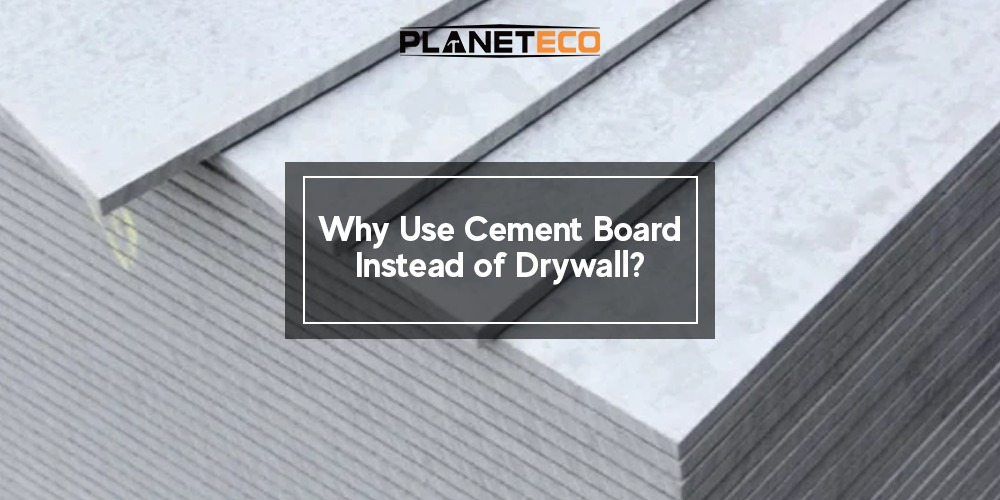Cement boards and Drywall are the common construction materials. Both materials can resist moisture and natural damage. However there are some differences which may make one superior over the other. But the question is, how to know which material you should choose? For this, we have designed this blog.
In comparison, cement board is more water-resistant and durable. On the other hand, drywalls are easy to work and affordable. If you are unaware of the advanced which cement board provide then you must read our guide to know why you should use cement board rather than Drywall.
To learn more about both materials, read further to know their properties and benefits.
Is Cement Board The Same As Drywall?
No, both are different but also similar in a few things. So, before diving into their differences, you should first know their definitions. They both have different qualities and serve different purposes. However, their appearance is somehow similar to each other. But when it comes to their properties, they vary!
So, What’s A Cement Board, And What’s Drywall?
Cement Board:
These are less costly cellulose sheets made with reinforced glass fibres and cement slurry. Mainly, this material is useful in countertop underlayment. Other than this, these can increase the durability of tiles and floors. However, for areas with high humidity, cement boards are the right choice. These are available in 3’x5′ and 4’x8′ panels and 0.25″ and 0.5″ thickness.
Drywall:
Another name is a wallboard made with gypsum panels and paper sheets. These are known as the best alternative to plaster. However, these are useful for high-humidity areas such as bathrooms.
Are these two the same?
Both materials are useful in humid areas and are available in sheet form. It is the only similarity between the two. However, the durability and strength of both materials are different.
To know what is different in both materials, let’s read the next section to understand the qualities and functions of these two building materials!
Differences Between Cement Board and Drywall
Both materials are useful in humid areas. But one material has more strength and durability than the other. In simple, the ability of both materials to stay durable in wet conditions is different. So, let’s come to know their major differences:
Cement Boards are waterproof and water-resistant:
Water-resistant materials can withstand wet conditions but only to a certain point. However, waterproof materials are coated and can withstand high humid conditions.
Due to both properties in cement boards, these are less prone to mildew and mould. It is because of the use of cement slurry and fibreglass in composition.
Drywalls are just water-resistant:
Drywalls only have gypsum core so these are just water resistant. It means more exposure to water can lead to mould and mildew growth. As a result, the material will rot and break down.
Durability:
When it comes to knowing the durability, cement board is the winner. It is because of the use of cement and fibreglass. As well as, these can resist impact and withstand for a long time.
However, Drywall is not very durable because of the use of paper sheets. This sheet is more prone to mildew and mould attack after high exposure to water. So the material is not very durable.
Weather Resistance:
When we talk about weather, three elements are main. These include wind, heat and water. So when cement boards are exposed to these elements, they can withstand. It is because the glass fibre lets them hold against all weather conditions.
On the other hand, drywalls need extra coating to resist weather conditions. Obviously, you want to keep the used material in place during heavy weather. So here the winner is cement boards.
So, Which Is Better?
Cement boards are the better option to use in external applications. However, for internal purposes, Drywall is good to go. But remember, cement boards can do Drywall even more than that.
This means cement board is the right option for indoor and outdoor applications. Due to dual use, cement boards are better than Drywall. However, you have to choose the material based on the location and project needs.
Conclusion:
It is concluded that both cement board and Drywall have many benefits. Both are useful in many buildings and the same projects. However ensure to be professional while dealing with cement board. On the other hand, Drywall is easy to work with but unable to resist moisture.
Which material should you choose? It is based on your preferences and needs of the project. So connect with the Planet ECO team to buy the required material for both of them!




































